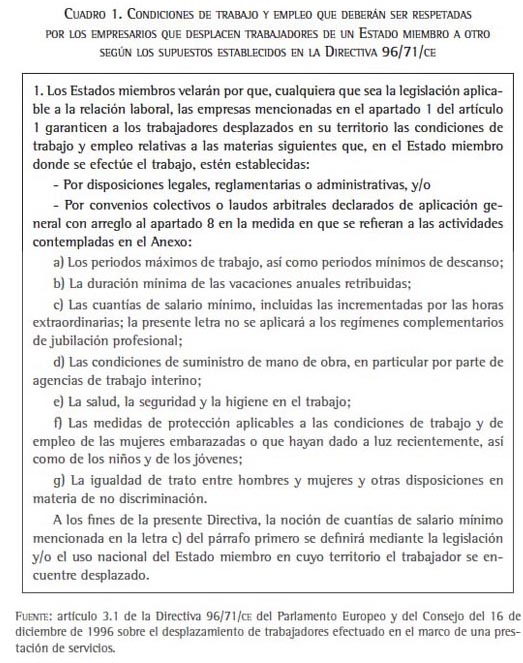Economia Del Lavoro Borjas Pdf

Seventh Edition George J. Borjas Harvard University Mc Graw Hill Education Economics. Contents Chapter 1 Introduction to Labor Economics 1.
About • • • Short Biography George J. Adobe Illustrator Cc Portable Free Download more. Borjas is the Robert W. Scrivner Professor of Economics and Social Policy at the Harvard Kennedy School. He was awarded the IZA Prize in Labor Economics in 2011. Professor Borjas is a Research Associate at the National Bureau of Economic Research and a Research Fellow at IZA. Professor Borjas is the author of several books, including Immigration Economics (Harvard University Press, 2014), Heaven's Door: Immigration Policy and the American Economy (Princeton University Press, 1999), and the widely used textbook Labor Economics (McGraw-Hill, 2016), now in its seventh edition.
His latest book is We Wanted Workers: Unraveling the Immigration Narrative, published by W. Norton in Fall 2016. He has also published over 150 articles in books and scholarly journals. His professional honors include citations in Who's Who in the World and Who's Who in America. Professor Borjas was elected a fellow of the Econometric Society in 1998 and a fellow of the Society of Labor Economists in 2004. In 2016, Politico listed Professor Borjas #17 in the list of the 50 'thinkers, doers and visionaries transforming American politics.For telling it like it really is on immigration.' He received his Ph.D.
In economics from Columbia University in 1975. Download Map Warcraft 3 Frozen Throne Naruto Battle Royal Terbaru. Biography George J. Borjas is the Robert W.
Scrivner Professor of Economics and Social Policy at the Harvard Kennedy School. He was awarded the IZA Prize in Labor Economics in 2011. Professor Borjas is also a Research Associate at the National Bureau of Economic Research and a Research Fellow at IZA. He received his Ph.D.
In economics from Columbia University in 1975. Prior to moving to Harvard in 1995, he was a Professor of Economics at the University of California at San Diego. Professor Borjas has written extensively on labor market issues. He is the author of several books, including Wage Policy in the Federal Bureaucracy (American Enterprise Institute, 1980), Friends or Strangers: The Impact of Immigrants on the U.S. Economy (Basic Books, 1990), Heaven's Door: Immigration Policy and the American Economy (Princeton University Press, 1999), Immigration Economics (Harvard University Press, 2014), and the widely used textbook Labor Economics (McGraw-Hill, 2016), now in its seventh edition. His latest book is We Wanted Workers: Unraveling the Immigration Narrative, published by W. Norton in Fall 2016.
He has also published over 150 articles in books and scholarly journals, including the American Economic Review, the Journal of Political Economy, and the Quarterly Journal of Economics. His work has also appeared in major magazines and newspapers, including articles in The Atlantic Monthly and National Review, as well as editorials in The New York Times, The Wall Street Journal, and Le Monde. His professional honors include citations in Who's Who in the World, Who's Who in America, Who's Who in Finance and Industry, Who's Who in Economics, and research grants from the National Science Foundation, the Sloan Foundation, the Russell Sage Foundation, the Smith-Richardson Foundation, and the MacArthur Foundation.
Professor Borjas was elected a fellow of the Econometric Society in 1998 and a fellow of the Society of Labor Economists in 2004. Professor Borjas was an editor of the Review of Economics and Statistics, and has been on the editorial boards of the Quarterly Journal of Economics and the International Migration Review. He was a member of the Council of Economic Advisors for the Governor of California (1993-1998), of the National Academy of Sciences Panel on the Demographic and Economic Impact of Immigration (1995-1997), of a second National Academy of Sciences Panel on the Economic Impact of Immigration (2014-2016), and chaired the National Science Foundation's Committee of Visitors for the Economics Program (1996). Professor Borjas has also been a consultant to the Office of the Attorney General of the State of California, to the World Bank, and to law firms engaged in litigation involving employment and wage-setting in labor markets.
Professor Borjas's research on the economic impact of immigration is widely perceived as playing a central role in the debate over immigration policy in the United States and abroad. Business Week and The Wall Street Journal, in a, have called him 'America's leading immigration economist'.
A in The New York Times Magazine in 2006 focused on his work, and called him 'the pre-eminent scholar in his field.' In 2016, Politico listed Professor Borjas #17 in the 'thinkers, doers and visionaries transforming American politics.For telling it like it really is on immigration.' He has appeared on many television news shows, and has testified before several congressional committees. Popular Articles Politico Magazine, August 4, 2017. Editorial in the New York Times, February 27, 2017. Editorial in the New York Times, October 24, 2016. Teaching API-101: Markets and Market Failure Fall 2014.
This course applies microeconomic reasoning to public issues, policies and programs. It considers economic incentives and organizations; models of economic behavior; the operation of markets; the price system and how it works; the consequences of market failure and interventions in markets; and policy objectives and instruments. Ec-980u: Immigration Economics Fall 2014.
There has been a resurgence of large-scale international migration in the past few decades. This course explores the economic determinants and consequences of these population flows. Specific topics include the study of how immigrants are non-randomly selected from the population of the countries of origin, the measurement and implications of economic assimilation in the receiving country, the impact of the flows on the labor markets of both receiving and sending countries, and the calculation of the economic benefits from immigration. Note: A research paper will be required. • © Copyright George Borjas.